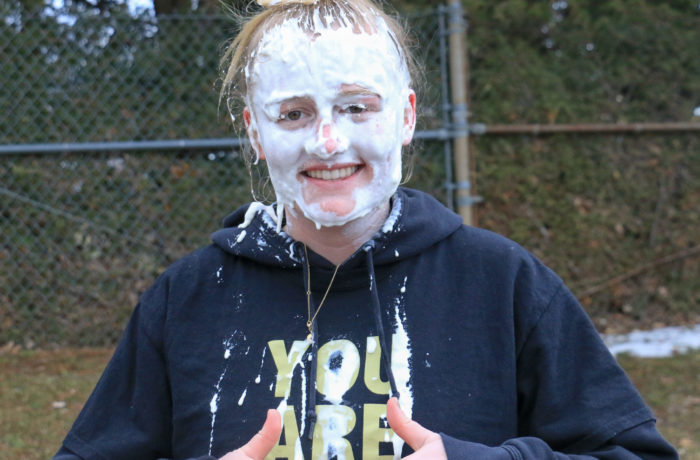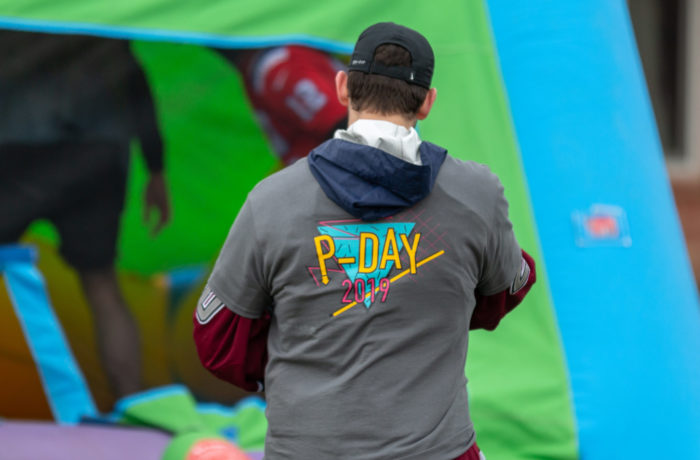By Hannah Hession
Staff Writer
In a controversial ad released last month, Gillette, the razor brand owned by industry giant Procter & Gamble, told men they need to be better.
The ad, part of a new campaign to attract younger customers, confronted the issue of toxic masculinity and challenged men to be the best versions of themselves. The almost two-minute commercial depicts instances of bullying, sexual harassment, and catcalling followed by scenes of men breaking up fights, standing up for women, and holding other men accountable for their actions. Drawing on the message of the #MeToo movement, the razor company called for their male customers “to say the right thing [and] to act the right way.”
“I think it’s especially important that this ad asks men to step up and call out issues of gender discrimination,” said Samantha Donahue ’21. “In my experience, women’s struggles and complaints often go ignored.”
In addition to the commercial, Gillette also pledged to donate three million dollars in the next three years to non-profit organizations aimed at helping men “achieve their personal best.” In a statement published to their website, the multinational corporation wrote that it feels a responsibility to promote “positive, attainable, inclusive and healthy versions of what it means to be a man.”
“It’s about time a major corporation took on the idea that toxic masculinity is a real thing,” said Traci Griffith, professor of Media Studies, Journalism & Digital Arts. “Toxic masculinity is about reinforcing masculinity to the detriment of other genders. But in the same way that men can develop toxic ideas and understandings of gender and dominance, they can also learn differently.”
Since its release in mid-January, the ad has been viewed over 28.5 million times on YouTube alone and has gotten significant coverage from mainstream media. Though the campaign has garnered praise for its progressive stance and positive message, it has also faced extreme backlash.
Piers Morgan, a prominent British TV personality, has become the celebrity face of the anti-Gillette movement. He tweeted, “I wasn’t aware that all men are presumed to be horrible human beings until they get shown a better way of behaving by @Gillette. Let boys be damn boys & men be damn men – and stop this damaging war on masculinity.” Morgan also expressed, in an article he wrote for the Daily Mail, that he feels Gillette is shaming men for being masculine and portraying all men as monsters.
“The entitlement and abuses of power by men is being loudly questioned and the entitled don’t like being held accountable for their actions,” said Shelley Vermilya, professor of GS-204 Men & Masculinities. “The Gillette ad offers a counter narrative to the rough, tough, toxic man that plays such a role in American attitudes about masculinity.” Vermilya believes that toxic masculinity and traditional male ideals, the very things the ad targets, are what fuels the anger that some men feel toward this ad.
Many people, including loyal Gillette users, were insulted by the ad’s insinuation that everyday men might not be “good enough.” They have accused the company of being “anti-men” and pledged to boycott its products. While a considerable opposition to Gillette sprang up around the world, only positive responses could be found on St. Michael’s campus. A KnightsList post was created to allow individuals angered or insulted by the ad to voice their opinions, but no one stepped forward to express their grief.
“I have no idea why anybody would be angry with this [ad],” said Damian DiGiulian, head coach of men’s ice hockey. “As a man, I don’t see the Gillette commercial as telling me I’m bad. They’re just saying that we can all do better.”
Despite the controversy, Gillette is standing by their new campaign. In response to the backlash, Gillette said that they expected some debate, but they believe open discussion is necessary for change.


